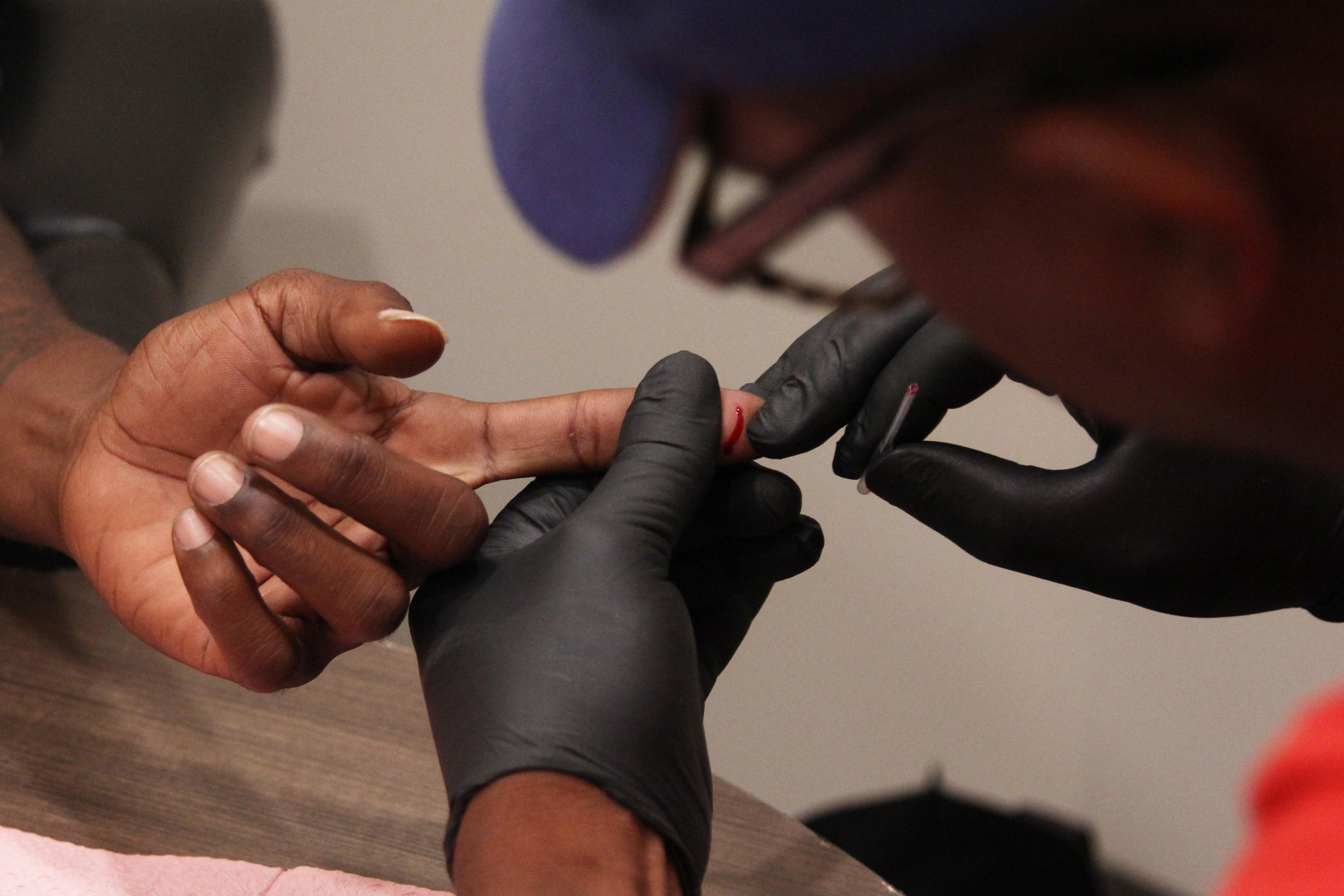Section Branding
Header Content
Georgia has some of the highest HIV rates in the country. But treatment has never been easier
Hero Image

Primary Content
DeMarcus Beckham performs multiple HIV tests a week.
“I've tested people in Kroger parking lots," Beckham said. "College campuses, church campuses, high schools, in back of cars."
Beckham is executive director for Bibb County-based HIV/AIDS advocacy group Reach to Impact. He’s licensed through the Georgia Department of Public Health to test for HIV, or human immunodeficiency virus, the virus connected to AIDS. He uses a rapid blood test that takes about five minutes. If it comes back positive, Beckham reports the result to the state and steers the client to counseling and medication.
When Beckham and others make those connections, it can help people not only live with HIV but also slow the virus’ spread.
“It truly impacts communities that are underserved, who do not have resources," Beckham said.
But even with rapid tests and effective drugs readily available, HIV is still an epidemic. More than half of new diagnoses in 2019 came from the South, 50% of which were among Black people. And Georgia ranks top five in the country for people living with HIV — over 60,000 in 2020, the last year for which Michael Hokanson said there is reliable HIV data.
Hokanson is the spokesperson for the North Central Health District, which serves 13 Georgia counties. He blames the COVID pandemic for the lack of recent HIV data and for people falling out of care.
“For about a year into the COVID-19 pandemic, our health departments were essentially focused entirely on COVID 19 testing," Hokanson said. "A lot of our services went by the wayside.”
The official numbers from 2019 to 2020 suggest the rate of annual infection dropped by a few hundred. But Hokanson says he doesn’t trust those numbers. The Centers for Disease Control and Prevention agrees. Hokanson expects 2021 data to still be spotty, as well.
Something else that makes tracking HIV difficult? At-home testing. Like we’ve seen with home COVID tests, just how to report an at-home positive through the proper channels isn’t always clear. So often home results don’t get reported.
Dr. Harold Katner is a longtime HIV physician in Macon. He says once people find HIV treatment it can be tough to keep them there, even though today’s medication, taken early in a diagnosis, can make the virus both virtually undetectable and nontransmissible.
“So the ones I have that are getting sick now, it's because they don't want to go to my clinic and they don't have insurance and I may not be able to sneak them into my office," Katner said. "And so they drop out of care. These are intelligent people, they just drop out of care. They just go into denial.”
Beckham blames lingering, persistent stigmas surrounding HIV.
“No one should feel ashamed," he said. "But you can be proactive."
Sydney Sandars is the HIV linkage coordinator for the North Central Public Health district. Like Beckham, she connects people to resources and looks out for people who, for whatever reason, fall out of HIV care.
“So even if they run off and stuff, we still try and make sure we can do everything we can for them," she said.
And Sandars says when she succeeds in pulling someone back into HIV care, that gives her a little bit of hope.

